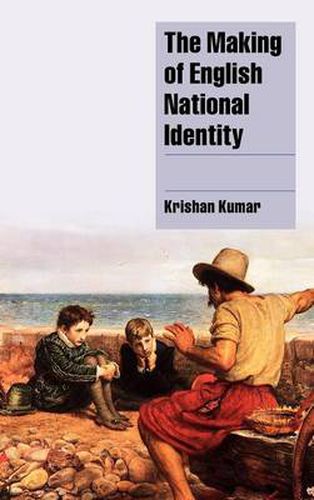Readings Newsletter
Become a Readings Member to make your shopping experience even easier.
Sign in or sign up for free!
You’re not far away from qualifying for FREE standard shipping within Australia
You’ve qualified for FREE standard shipping within Australia
The cart is loading…






Why is English national identity so enigmatic and so elusive? Why, unlike the Scots, Welsh, Irish and most of continental Europe, do the English find it so difficult to say who they are? The Making of English National Identity is a fascinating exploration of Englishness and what it means to be English. Drawing on historical, sociological and literary theory, Krishan Kumar examines the rise of English nationalism and issues of race and ethnicity from earliest times to the present day. He argues that the long history of the English as an imperial people has, as with other imperial people like the Russians and the Austrians, developed a sense of missionary nationalism which in the interests of unity and empire has necessitated the repression of ordinary expressions of nationalism. Professor Kumar’s lively and provocative approach challenges readers to reconsider their pre-conceptions about national identity and who the English really are.
$9.00 standard shipping within Australia
FREE standard shipping within Australia for orders over $100.00
Express & International shipping calculated at checkout
Why is English national identity so enigmatic and so elusive? Why, unlike the Scots, Welsh, Irish and most of continental Europe, do the English find it so difficult to say who they are? The Making of English National Identity is a fascinating exploration of Englishness and what it means to be English. Drawing on historical, sociological and literary theory, Krishan Kumar examines the rise of English nationalism and issues of race and ethnicity from earliest times to the present day. He argues that the long history of the English as an imperial people has, as with other imperial people like the Russians and the Austrians, developed a sense of missionary nationalism which in the interests of unity and empire has necessitated the repression of ordinary expressions of nationalism. Professor Kumar’s lively and provocative approach challenges readers to reconsider their pre-conceptions about national identity and who the English really are.